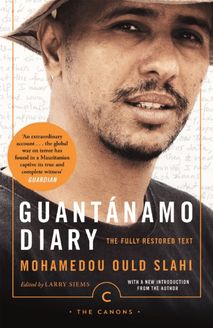-
 Univers
Univers
-
 Ebooks
Ebooks
-
 Livres audio
Livres audio
-
 Presse
Presse
-
 Podcasts
Podcasts
-
 BD
BD
-
 Documents
Documents
-
- Cours
- Révisions
- Ressources pédagogiques
- Sciences de l’éducation
- Manuels scolaires
- Langues
- Travaux de classe
- Annales de BEP
- Etudes supérieures
- Maternelle et primaire
- Fiches de lecture
- Orientation scolaire
- Méthodologie
- Corrigés de devoir
- Annales d’examens et concours
- Annales du bac
- Annales du brevet
- Rapports de stage
La lecture à portée de main
Vous pourrez modifier la taille du texte de cet ouvrage
Découvre YouScribe en t'inscrivant gratuitement
Je m'inscrisDécouvre YouScribe en t'inscrivant gratuitement
Je m'inscrisEn savoir plus
Vous pourrez modifier la taille du texte de cet ouvrage
En savoir plus

Description
Sujets
Informations
| Publié par | Canongate Books |
| Date de parution | 20 janvier 2015 |
| Nombre de lectures | 1 |
| EAN13 | 9781782112860 |
| Langue | English |
| Poids de l'ouvrage | 2 Mo |
Informations légales : prix de location à la page 0,0400€. Cette information est donnée uniquement à titre indicatif conformément à la législation en vigueur.
Extrait
GUANTÁNAMO DIARY
Mohamedou Ould Slahi was born in a small town in Mauritania in 1970. He won a scholarship to attend college in Germany and worked there for several years as an engineer. He returned to Mauritania in 2000. The following year, at the behest of the United States, he was detained by Mauritanian authorities and rendered to a prison in Jordan; later he was rendered again, first to Bagram Air Force Base in Afghanistan, and finally, on August 5, 2002, to the U.S. prison at Guantánamo Bay, Cuba, where he was subjected to severe torture. In 2010, a federal judge ordered him immediately released, but the government appealed that decision. He was cleared and released on October 16, 2016, and repatriated to his native country of Mauritania. No charges were filed against him during or after this ordeal.
Larry Siems is a writer and human rights activist and for many years directed the Freedom to Write Program at PEN American Center. He is the author, most recently, of The Torture Report: What the Documents Say about America’s Post-9/11 Torture Program . He lives in New York.
‘This Guantánamo detainee’s harrowing memoir is a tremendous achievement – and a grave warning against ignoring the rule of law’
Observer
‘This is a necessary book. It reminds us that the evil we’re fighting can be found in ourselves as well as our enemies’
Daily Telegraph
‘A sobering, often chilling, read. Slahi’s story deserves to be widely read’
Independent
‘An extraordinary account . . . the global war on terror has found in a Mauritanian captive its true and complete witness’
Guardian
‘Slahi’s book offers a reminders that the struggles we face in these difficult times involve real individuals, not faceless creatures who are to be characterised as members as one or other hated group. That he has resorted to words, the mightiest of weapons . . . makes his experience all the more relevant today’
Financial Times
‘Mohamedou Ould Slahi’s demand for simple justice should be our call to action. Because what’s at stake in this case is not just the fate of one man who managed, against all odds, to tell his story, but the future of our democracy’
Glenn Greenwald
‘Compelling’ Economist
‘Slahi is an intelligent and sensitive writer whose sense of irony somehow survived along with his sanity’
London Review of Books
‘A kind of dark masterpiece, a sometimes unbearable epic of pain, anguish, and bitter humour . . . The process, which has never been described more intimately or more convincingly, resembles nothing so much as a postmodern globalized version of the Salem witch trials’
New York Times Book Review
‘The big surprise about Slahi’s book . . . is that, in addition to being appalling and sad, it’s funny . . . The diary’s tone is friendly, exasperated, curious, and ironic . . . Slahi doesn’t just humanize himself; he also humanizes his guards and interrogators. That’s not to say that he excuses them. Just the opposite: he presents them as complex individuals who know kindness from cruelty and right from wrong’
New Yorker
‘Necessary reading for those seeking to understand the dangers that Guantanamo’s continued existence poses to Americans in the world . . . a fluent, engaging and at times eloquent writer even in his fourth language of English’
Washington Post
‘Gripping . . . Extraordinary . . . Mr. Slahi emerges from the pages of his diary . . . as a curious and generous personality, observant, witty, and devout, but by no means fanatical . . . Guantánamo Diary forces us to consider why the United States has set aside the cherished idea that a timely trial is the best way to determine who deserves to be in prison’
The New York Times
GUANTÁNAMO DIARY THE FULLY RESTORED TEXT
MOHAMEDOU OULD SLAHI
Edited by LARRY SIEMS WITH A NEW INTRODUCTION FROM THE AUTHOR
CANONGATE
This Canons edition published by Canongate Books in 2017 First published in Great Britain in 2015 by Canongate Books Ltd, 14 High Street, Edinburgh EH1 1TE
canongate.co.uk
This digital edition first published in 2017 by Canongate Books
Diary, restored diary and introduction to the restored edition copyright © 2015, 2017 by Mohamedou Ould Slahi
Notes and introduction to the original edition copyright © 2015, 2017 by Larry Siems
The moral rights of the authors have been asserted
First published in the United States by Little, Brown and Company, Hachette Book Group, Inc, 1290 Avenue of the Americas, New York, NY 10104
First Back Bay trade paperback edition, December 2015 Restored edition, October 2017
British Library Cataloguing-in-Publication Data A catalogue record for this book is available on request from the British Library
ISBN 978 1 78689 185 3 eISBN 978 1 78211 286 0
To my late mother, Maryem Mint El Wadia
Contents
A Timeline of Detention
Note on the Text and Annotations of the Restored Edition
The End of the Story, and an Introduction to the New Edition by Mohamedou Ould Slahi One Jordan–Afghanistan–GTMO July 2002–February 2003 BEFORE Two Senegal–Mauritania January 21, 2000–February 19, 2000 Three Mauritania September 29, 2001–November 28, 2001 Four Jordan November 29, 2001–July 19, 2002 GTMO Five GTMO February 2003–August 2003 Six GTMO September 2003–December 2003 Seven GTMO 2004–2005 Author’s Note Editor’s Introduction to the First Edition Editor’s Acknowledgments to the First Edition
A Timeline of Detention January 2000 After spending twelve years studying, living, and working overseas, primarily in Germany and briefly in Canada, Mohamedou Ould Slahi decides to return to his home country of Mauritania. En route, he is detained twice at the behest of the United States—first by Senegalese police and then by Mauritanian authorities—and questioned by American FBI agents in connection with the so-called Millennium Plot to bomb LAX. Concluding that there is no basis to believe he was involved in the plot, authorities release him on February 19, 2000. 2000–fall 2001 Mohamedou lives with his family and works as an electrical engineer in Nouakchott, Mauritania. September 29, 2001 Mohamedou is detained and held for two weeks by Mauritanian authorities and again questioned by FBI agents about the Millennium Plot. He is again released, with Mauritanian authorities publicly affirming his innocence. November 20, 2001 Mauritanian police come to Mohamedou’s home and ask him to accompany them for further questioning. He voluntarily complies, driving his own car to the police station. November 28, 2001 A CIA rendition plane transports Mohamedou from Mauritania to a prison in Amman, Jordan, where he is interrogated for seven and a half months by Jordanian intelligence services. July 19, 2002 Another CIA rendition plane retrieves Mohamedou from Amman; he is stripped, blindfolded, diapered, shackled, and flown to the U.S. military’s Bagram Air Base in Afghanistan. The events recounted in Guantánamo Diary begin with this scene. August 4, 2002 After two weeks of interrogation in Bagram, Mohamedou is bundled onto a military transport with thirty-four other prisoners and flown to Guantánamo. The group arrives and is processed into the facility on August 5, 2002. 2003–2004 U.S. military interrogators subject Mohamedou to a “special interrogation plan” that is personally approved by Defense Secretary Donald Rumsfeld. Mohamedou’s torture includes months of extreme isolation; a litany of physical, psychological, and sexual humiliations; death threats; threats to his family; and a mock kidnapping and rendition. March 3, 2005 Mohamedou handwrites his petition for a writ of habeas corpus. Summer 2005 Mohamedou handwrites the 466 pages that would become this book in his segregation cell in Guantánamo. June 12, 2008 The U.S. Supreme Court rules 5–4 in Boumediene v. Bush that Guantánamo detainees have a right to challenge their detention through habeas corpus. August–December 2009 U.S. District Court Judge James Robertson hears Mohamedou’s habeas corpus petition. March 22, 2010 Judge Robertson grants Mohamedou’s habeas corpus petition and orders his release. March 26, 2010 The Obama administration files a notice of appeal. November 5, 2010 The DC Circuit Court of Appeals sends Mohamedou’s habeas corpus case back to U.S. district court for rehearing. It languishes there for years. January 20, 2015 Guantánamo Diary is published in the United States, the United Kingdom, and seven other countries. Publishers in nineteen more countries will release translations of the book in the next two years. June 2, 2016 Mohamedou appears before a Periodic Review Board in Guantánamo. July 14, 2016 The Periodic Review Board concludes Mohamedou’s imprisonment in Guantánamo “is no longer necessary to protect against a continuing significant threat to the security of the United States.” October 16, 2016 Mohamedou is released from Guantánamo. As he was on the flight to Guantánamo fourteen years before, he is shackled and wears a blindfold and earmuffs on the U.S. military transport throughout the flight. October 17, 2016 The military transport lands at the airport in Nouakchott, Mauritania, around 2 p.m. A few hours later, Mohamedou is reunited with his family.
Note on the Text and Annotations of the Restored Edition
At the end of my Notes on the Text, Redactions, and Annotations for the first published edition of Guantánamo Diary, I wrote,
So many of the editing challenges associated with bringing this remarkable work to print result directly from the fact that the U.S. government continues to hold the work’s author, with no satisfactory explanation to date, under a censorship regime that prevents him from participating in the editorial process. I look forward to the day when Mohamedou Ould Slahi is free and we can read this work in its entirety, as he would have it published.
This is that day, and that edition.
On October 16, 2016, 5,445 days after he drove himself to Mauritania’s national police for questioning and was forcibly disappeared, Mohamedou was released fr
-
 Univers
Univers
-
 Ebooks
Ebooks
-
 Livres audio
Livres audio
-
 Presse
Presse
-
 Podcasts
Podcasts
-
 BD
BD
-
 Documents
Documents
-
Jeunesse
-
Littérature
-
Ressources professionnelles
-
Santé et bien-être
-
Savoirs
-
Education
-
Loisirs et hobbies
-
Art, musique et cinéma
-
Actualité et débat de société
-
Jeunesse
-
Littérature
-
Ressources professionnelles
-
Santé et bien-être
-
Savoirs
-
Education
-
Loisirs et hobbies
-
Art, musique et cinéma
-
Actualité et débat de société
-
Actualités
-
Lifestyle
-
Presse jeunesse
-
Presse professionnelle
-
Pratique
-
Presse sportive
-
Presse internationale
-
Culture & Médias
-
Action et Aventures
-
Science-fiction et Fantasy
-
Société
-
Jeunesse
-
Littérature
-
Ressources professionnelles
-
Santé et bien-être
-
Savoirs
-
Education
-
Loisirs et hobbies
-
Art, musique et cinéma
-
Actualité et débat de société
- Cours
- Révisions
- Ressources pédagogiques
- Sciences de l’éducation
- Manuels scolaires
- Langues
- Travaux de classe
- Annales de BEP
- Etudes supérieures
- Maternelle et primaire
- Fiches de lecture
- Orientation scolaire
- Méthodologie
- Corrigés de devoir
- Annales d’examens et concours
- Annales du bac
- Annales du brevet
- Rapports de stage




















